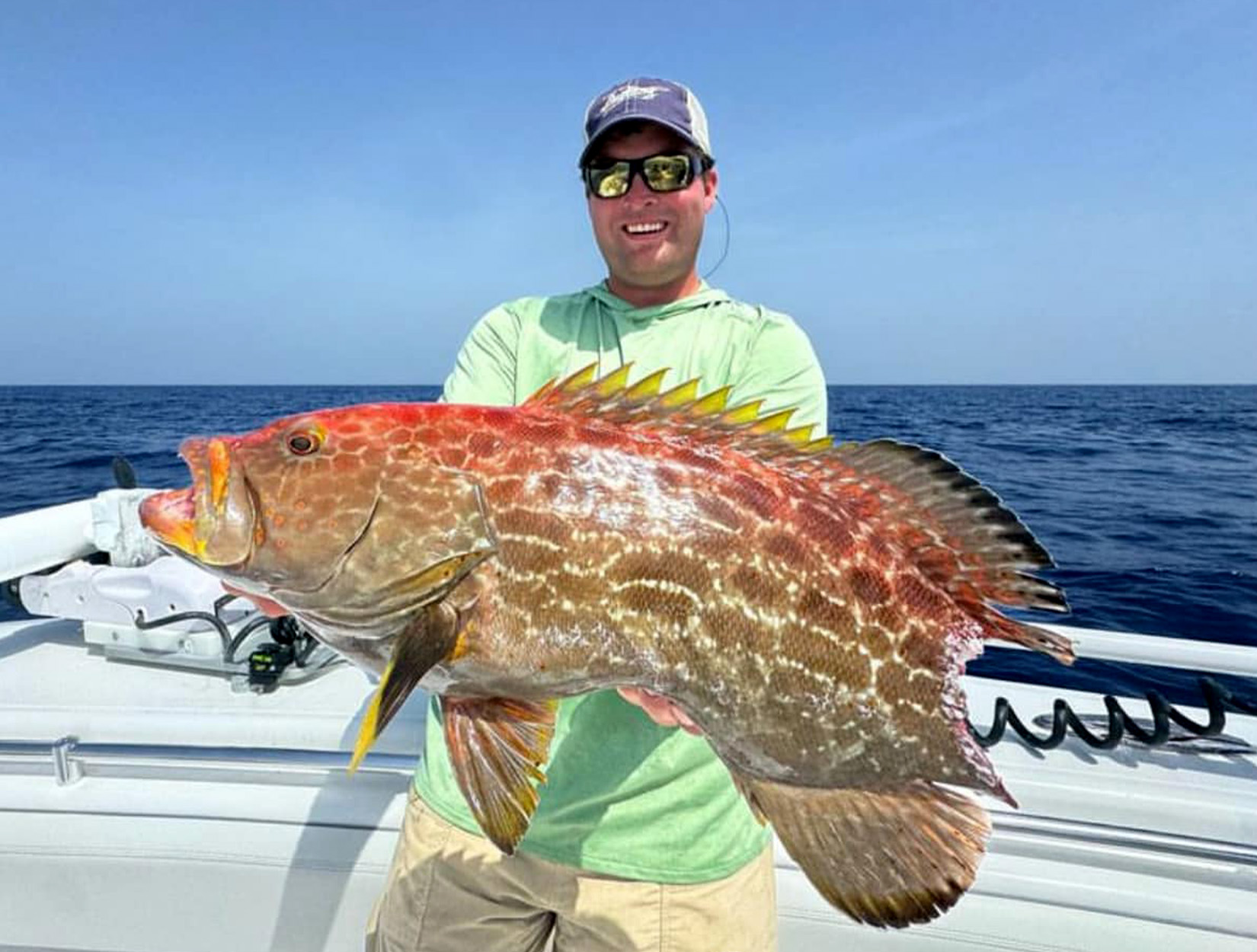If you go fishing off the Florida coast anytime soon, there’s an almost fifty-fifty chance you’ll lose a fish to the “taxman” — the nickname for a shark that steals a fish off your line. Go down to the Florida Keys during the springtime and your chances of losing a fish to a shark are even higher. These are just a couple takeaways from a recent study that confirms and helps quantify what Florida charter captains and saltwater anglers have long been saying: that they’re losing more fish to sharks than ever before.
“The biggest threat to my charter fishing is when sharks attack [fish] caught by my clients,” Florida captain Ray Markham told Outdoor Life in July. “I’ve seen 15-foot sharks that’ll take a tarpon out of your hand when you’re trying to unhook and release the fish.”
Read Next: Charter Captains Say Sharks Are Out of Control and They’re Losing More Fish to the ‘Taxman’
Several other experienced saltwater captains have repeated Markham’s claims. In multiple interviews with OL in recent years, they say sharks have become especially problematic in the southern Atlantic and Gulf Coasts, where warmer waters and large schools of baitfish and shrimp bring in gamefish and sportfishing boats, which attract sharks in droves.
The recent shark depredation study, published earlier this month in the Journal of Marine Science, further supports these and other captains’ claims. Dr. Matt Ajeiman at Florida Atlantic University led the collaborative research project, which alluded to the southeastern U.S. as a “hot spot” for shark depredations but focused specifically on Florida’s recreational fisheries. This fills an important gap, as most depredation studies of the past have focused on the effects of sharks on commercial fishing operations.

“Feeding sharks with the fish we hook is an everyday occurrence for me and just about every other charter captain I know,” Florida-based charter captain Joel Brandenburg told OL last summer. “The sharks roaming ledges and reefs are trained to come to fishing boats and hang there waiting for an easy meal.”
The study ran from July 2020 to June 2022. Ajeiman and other researchers relied partly on recreational angler surveys and social media posts to gauge the extent of the taxman problem in Florida. Researchers also rode along on charter trips, where they witnessed sharks and other ocean predators in action and used genetic analysis to try and identify the species responsible for the depredations. Here are some of the biggest takeaways from that study:
- 43 percent of respondents said they had lost a fish to a shark or other predator during a recent outing on the Florida coast. This percentage fluctuated between 10 and 60 percent depending on the region and time of year.
- Bull sharks steal the most fish in Florida. Sharks were responsible for roughly 86 percent of all depredations, and more than a third (38.5 percent) of those events involved bull sharks. Other depredators included dolphins, barracudas, and alligators.
- Snappers and groupers are the gamefish most at risk from sharks and other predators. Nearly three-quarters of all depredations involved gamefish species in the snapper-grouper family. The most common species taken by sharks were mutton snapper, red snapper, and greater amberjack.
- Depredations tend to increase during the spring and summer months, and the highest numbers were seen in the Florida Keys.

In summarizing the study’s findings, Ajeiman underscored “the power of citizen science,” and said the input they received from sport anglers was crucial in understanding the extent of shark depredations in Florida.
Read Next: Shark Eats What Could Have Been the New World-Record Red Snapper
“Our findings could help fishery managers in developing informed, science-based strategies to address shark depredation while balancing conservation and recreational fishing interests,” Ajeiman said. “By engaging anglers directly, we can gather valuable data that might otherwise be difficult to obtain, ultimately leading to more effective and inclusive fisheries management.”

